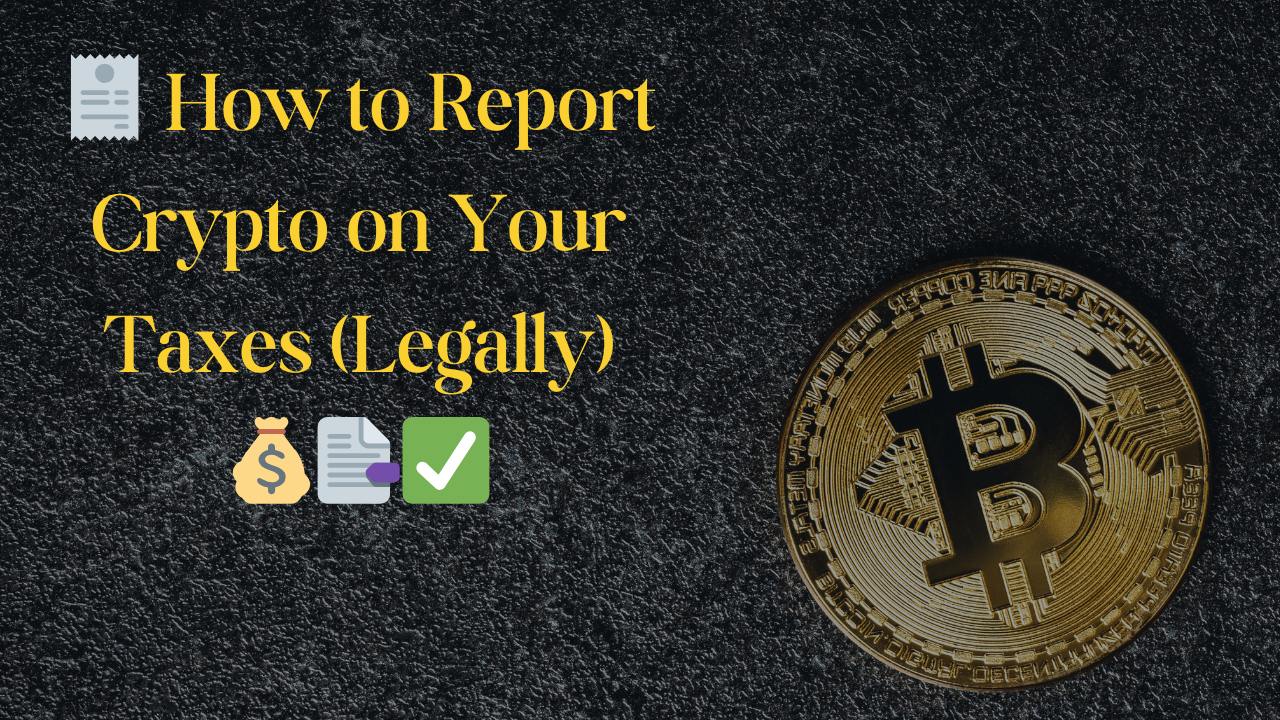🧑⚖️ Understanding Crypto Regulations in Your Country
2025-04-02 23:29:56.713 +0000 UTC

🧑⚖️ Understanding Crypto Regulations in Your Country
Crypto might be decentralized, but it doesn’t exist in a legal vacuum. 🏛️ As adoption grows, so does government oversight—and depending on where you live, the laws can vary wildly. From tax reporting to exchange licensing, understanding your local crypto regulations is essential. ⚖️
In this guide, we’ll explore how crypto is regulated in different parts of the world, why it matters, and what you should know to stay compliant, secure, and ahead of the curve. 🌍🧠
🌐 Why Crypto Regulations Matter
- 🧾 Taxes: Most countries treat crypto as property or income—you might owe taxes on trades, mining, or staking.
- 💼 Exchanges: Not all platforms are legal or licensed where you live.
- 🚫 Bans: Some governments restrict or outlaw crypto entirely.
- 🔍 Protection: Regulations can help prevent fraud, scams, and abuse.
✅ Bottom line: You need to know the rules in your country to avoid penalties and make smarter investment decisions. 🧾🔐
📍 How Crypto Is Regulated by Region
🇺🇸 United States
- 📜 Crypto is considered property by the IRS (capital gains apply).
- 🛑 The SEC and CFTC classify tokens differently (security vs. commodity).
- 📈 Exchanges must be registered with FinCEN and follow AML/KYC rules.
- 🧾 Tax reporting is mandatory—Form 8949 and Schedule D are common.
🇨🇦 Canada
- 💼 Crypto is legal and taxed as capital gains or business income.
- 🏦 Exchanges must register as money service businesses (MSBs).
- 🧾 Tax reporting is required for trades, mining, and staking.
🇬🇧 United Kingdom
- 📉 Crypto is subject to capital gains and income tax.
- 🔍 HMRC requires tracking of all crypto transactions.
- 📊 No VAT on crypto trading, but mining and NFTs may vary.
🇦🇺 Australia
- 🧾 Crypto is taxed as property—capital gains apply on trades.
- 💬 The ATO requires full transaction history for tax filings.
- 📈 Exchanges must register with AUSTRAC and follow AML rules.
🇪🇺 European Union
- 🏛️ Regulatory framework is evolving under MiCA (Markets in Crypto Assets Regulation).
- 💡 Legal treatment varies by country (Germany, France, etc.).
- 🔐 MiCA aims to regulate stablecoins, exchanges, and asset-backed tokens by 2025.
🇮🇳 India
- 📊 Crypto is not banned but heavily taxed (30% flat on gains + 1% TDS).
- 🚫 No loss deductions allowed for crypto gains.
- 💼 Exchanges are operational but face banking restrictions.
🇨🇳 China
- 🚫 All crypto trading and mining are banned.
- 🏦 The government promotes its digital yuan (CBDC) instead.
- 📉 Crypto activity is heavily monitored and penalized.
🔍 Key Regulatory Concepts to Understand
1️⃣ KYC (Know Your Customer)
Most legal exchanges require identity verification to comply with anti-money laundering laws. 🧾
2️⃣ AML (Anti-Money Laundering)
These laws prevent the use of crypto for illegal activities—exchanges must report suspicious behavior. 🕵️♂️
3️⃣ Securities vs. Commodities
Some tokens are considered securities, others are commodities. This affects how they’re regulated and who can sell/trade them. 📈
4️⃣ Capital Gains Tax
Most countries tax profits from selling crypto—even swapping one token for another can be a taxable event. 💸
5️⃣ Taxable Events
- 💵 Selling crypto for fiat
- 🔁 Swapping one token for another
- 🪙 Earning crypto via staking, mining, or airdrops
📘 How to Stay Compliant
✅ Track Your Transactions
- 📊 Use tools like CoinTracker, Koinly, or CoinLedger
- 🗂️ Keep records of buy/sell dates, prices, and wallet addresses
- 📎 Save receipts from exchanges or dApps
✅ Choose Legal Exchanges
- 🛡️ Use platforms that are licensed and comply with local laws
- 💳 Be cautious when using offshore or unregulated platforms
✅ File Taxes Properly
- 🧾 Use crypto tax software or a CPA familiar with digital assets
- 📆 File annually or quarterly depending on your region
- 📉 Don’t forget to include losses—they can offset gains
📚 Where to Learn More
- 🌐 Official tax websites (IRS, CRA, ATO, HMRC, etc.)
- 📜 Crypto-specific tax guides by region (CoinTracker, Koinly blogs)
- 🧠 Follow legal analysts on Twitter and YouTube
- 📅 Watch for updates—laws are changing quickly!
🚨 What Happens If You Don’t Follow the Rules?
- 💣 You may owe back taxes, penalties, and interest
- 🚫 Your accounts may be frozen or closed
- 🧾 You could face audits or legal action
Crypto may be decentralized—but you’re still responsible for staying compliant. 👨⚖️
✅ Final Thoughts
Crypto regulations can feel complicated, but they’re important for protecting investors and helping the industry grow. 🌱
Take time to understand your country’s rules, file your taxes, and use compliant tools and exchanges. Knowledge isn’t just power—it’s protection. 🔐
💬 Coming up next: 🏰 Why You Should Never Leave Crypto on Exchanges


